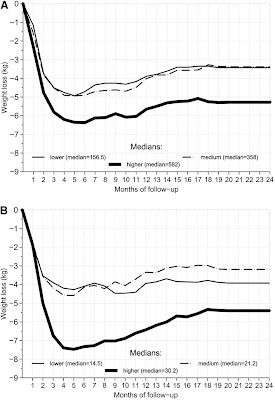Once and for all? Calcium + Vitamin D Help you Losing Weight
The debate about whether or not dairy consumption facilitates weight loss was among the first of several ongoing conflicts about what to eat and what not to eat to lose weight. While many more recent studies did not find statistically significant effects of dairy consumption on body composition and weight loss, a new study by Shahar et al. (Shahar. 2010) reminds us of the dream to just have our daily glass of milk to get slim and healthy.
Other than many previous studies, the scientists did not provide their 332 overweight subjects with a certain amount of dairy in the 2-years intervention period, but monitored calcium and vitamin D levels in 6-months intervals.
On a side note: Other than calcium which can easily be obtained from a healthy diet, which does not even have to be high in dairy, recent investigations show that there appears to be a genuine need for vitamin D supplementation to overcome the prevalent vitamin D deficiency in the western world.
 |
| Figure 1: 1. Weight change across 6-mo tertiles. A: Weight change by tertiles of dairy calcium intake during the first 6 mo (n = 322). B: Weight change by tertiles of serum 25(OH)D at 6 mo (n = 126) |
Other than many previous studies, the scientists did not provide their 332 overweight subjects with a certain amount of dairy in the 2-years intervention period, but monitored calcium and vitamin D levels in 6-months intervals.
in repeated-measures models adjusted for age, sex, baseline BMI, total fat intake, and diet group assignment, higher 6-mo tertile levels of dairy calcium intake (median for tertiles: 156.5, 358.0, and 582.9 mg/d, respectively) and serum 25(OH)D (14.5, 21.2, and 30.2 ng/mL, respectively) were associated with increased weight loss across the 2-y intervention (–3.3, –3.5, and –5.3 kg, respectively, for dairy calcium; P = 0.043; –3.1, –3.8, and –5.6 kg, respectively, for vitamin D; P = 0.013). In a multivariate logistic regression adjusted simultaneously for age, sex, baseline BMI, total fat intake, diet group, vitamin D concentration, and dairy calcium, an increase of 1 SD [PA: standard deviation] in dairy calcium intake increased the likelihood of weight loss of >4.5 kg in the preceding 6 mo [odds ratio (OR): 1.45; P = 0.046]. A similar increase was seen for serum 25(OH)D at the 6-mo point (OR: 1.7; P = 0.009).Apart from a different design and a very long observation period the means by which the scientists analyzed the data, i.e. adjusting for age, sex, baseline BMI, total fat intake, and diet group assignment, may well be responsible for the different outcome of previous investigations. We will see, what the next study is going to tell us ;-)
On a side note: Other than calcium which can easily be obtained from a healthy diet, which does not even have to be high in dairy, recent investigations show that there appears to be a genuine need for vitamin D supplementation to overcome the prevalent vitamin D deficiency in the western world.


